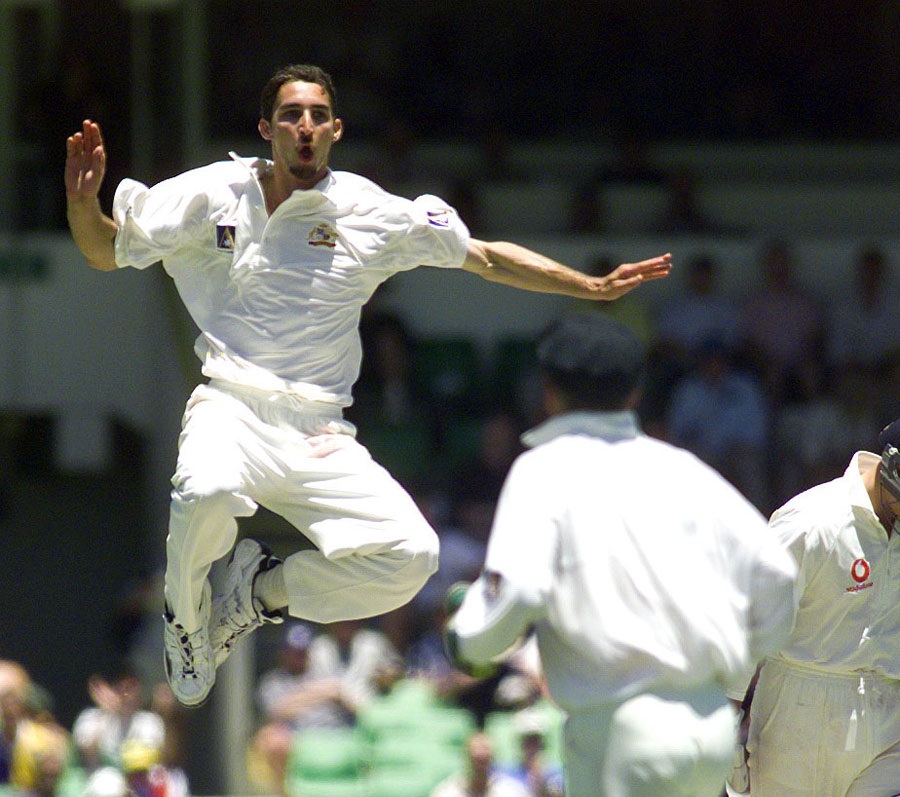Some thoughts on leadership in cricket and how to get the best out of young players follow.
Peter Procopis | November 18, 2023

Recently, I've had the pleasure of some interesting discussions with players, Coaches and Captains of Grade Cricket teams about leadership, and in particular how to get the best out of young players.
Serendipitously, the exchange reproduced below between a journalist and former Australian fast bowler and current South Australian Redbacks Coach, Jason Gillespie, came through one of my feeds this week. In his response, Gillespie neatly captures the essence of one of my contentions during those recent discussions, namely that the most important question a young player, or indeed any cricketer, should be answering via their training, preparation and match play is "What does my team need me to do to help us win?"
Here's the exchange:
INTERVIEWER: You became renowned for long spells with Australia, but do you think your role changed depending on who was the other seamer in there with McGrath and yourself - whether it was Reiffel, Bichel, Kasprowicz, Lee?
JASON GILLESPIE: Definitely. When Brett Lee and Glenn McGrath played, they both wanted to bowl with the wind and downhill. I was the third seamer, and I just thought, "Well, I want to play international cricket and 50% of the overs need to be bowled uphill and into the breeze, so it may as well be me." And I was more than happy to take that role on because it helped the team. Simple as that. You do what you need to do for the team. I've seen or heard comments from players - "I deserve to bat here" or "I deserve to bowl here", "I've earned the right", all these sorts of things, and I don't buy that. You go where the team needs you.
When you read Gillespie's words you can see how in addition to producing those consistently accurate, fast, testing spells, his mindset enabled him to compile that remarkable Test double century. Presumably, he trained himself over many years to play the game in front of him on any given day in the interests of his team.
Gillespie's approach provides a clear, simple, and effective way for young cricketers to go about their business. There has never been more 'noise' for such youngsters as they progress through the ranks. One of the more limiting, and at times even damaging type of messages they receive from some quarters is the idea that the best, toughest and therefore most successful cricketers are selfish and mostly driven by individual goals.
There is often nothing malevolent about these messages. They simply reflect some individuals' analyses of what they've seen and heard in the game. And that's fine. The game is certainly a complex integration of individual and team-based activities. But to cut it up into selfish little bites and view successful team performance as simply the sum of individuals' achieving personal goals is a particularly detrimental way to portray the game to young players progressing through the ranks.
The last thing most youngsters need is to spend more time in their own heads worrying about statistics, personal milestones, and benchmarks. There is enough of that as it is. Rather, they should keep it clear, simple, and effective by taking a leaf out of Gillespie's book and focusing on becoming a match-winner on their best days and at least a contributor towards wins on others.
The great thing about Gillespie's approach is that it drives improvement and generates excellence far more effectively than the selfish approach. Sometimes a team will need a young bowler to bowl downwind and attack for wickets; other times the team will need a run-saving, into-the-wind spell to help the skipper control a period of the game.
Similarly, a team will sometimes need a young No.4 batter to come out and look to help the team turn 2-120 off 35 into a 330 plus total by the end of an afternoon. Other times the team might need the same player to help the team move with care from 2-18 off 11 to 2-60 at Lunch.
Players that have been training themselves to perform in ways that answer the questions about what their team needs them to do are much more likely to successfully adapt their game to overcome the various challenges.
Those players don't just aim to have one 'game' that they are trying to perfect to build impressive personal statistics. They have multiple 'games' that they try to apply to situations to set up wins for their team. Ultimately, not only do those sorts of performances provide arguably the deepest and most soul-enlargening moments a cricketer can experience, but they are also the most attractive to professional cricket outfits who, more often than not these days, are looking to build a list of players adept at contributing to wins in whatever various, adaptive ways possible.
Of course, it is more difficult in many ways to build yourself into an multi-faceted, adaptable player that can contribute in numerous ways to team victories than it is to focus on mastering one mode of bowling or batting. There will be plenty of failures and frustrations along the way as you stretch yourself out of your comfort zone. But you'll be doing so with a clear, healthy, sustainable big-picture focus of becoming a match-winning player and a valuable member of a team, rather than spending your time mired in questions about statistics, personal milestones and benchmarks. That path can be very destructive and detrimental to any cricketer's long-term performance but particularly so for young up-and-comers in the game.
The adaptable, competitive, team-based approach described by Jason Gillespie provides a far superior, more successful, and ultimately more rewarding choice for young cricketers. If Coaches and Captains align with this approach, the alchemy will produce peak team performances more often.








